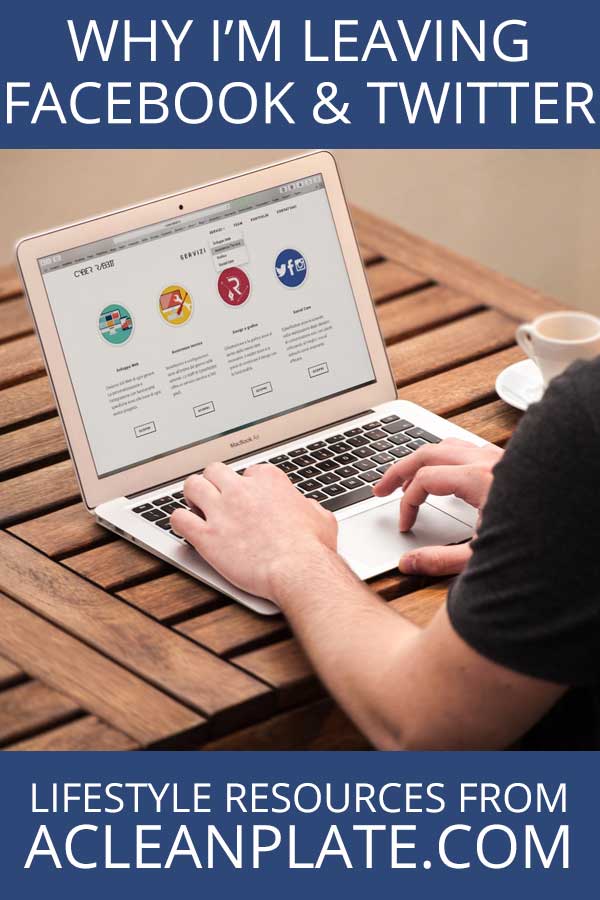Why I’m Leaving Social Media
Like the smart phone, social media is ubiquitous in today’s world. We use Facetime to stay connected with distant relatives. We use Snapchat or Messenger instead of texts. We find recipes on Pinterest and Instagram and get our news from Twitter. All from one convenient device in the palm of our hand. Seriously, how did we ever live without it?
Social media is the only reason I’m here today. It was in a Facebook group for people with chronic illness that I learned about the autoimmune protocol and began down the road that led to A Clean Plate and my happy, healthy life. Every now and then, social media brings people together in love and support in ways that simply were not possible without it. But those instances can be few and far between, and they may not mitigate the detrimental effects social media can have.
Last February, a study was published in the American Journal of Epidemiology which looked at the long-term effects of Facebook use for both new and consistent users. The study found that not only do we unfairly compare ourselves to our friends’ carefully-curated social media presentations, leading to jealousy and depression, but that we spent so much time on social media that we missed out on more-meaningful real-life connections. Overwhelmingly, users in the study reported poorer physical and mental health as a result of increased Facebook use.
On the other hand, participating in real-life social events tends to leave us feeling happy, content, and engaged. Seeing another human face while we talk, laugh, and tell stories and being able to touch or hug the people in our social group affects us in ways you can’t simulate through a computer screen. And while it’s not always easy to find a social group when you’re chronically ill, anxious, in a rural area, or all of the above, it’s important to recognize that social media isn’t a substitute.
The platform’s ever-changing engagement algorithms present another problem. Because social media companies get their income from advertisers, they need as many engaged users as possible at any given moment. Therefore, they reward people and pages with high engagement and punish those who don’t post as often or have as many friends by throttling their reach. Scroll through your friend’s pages and you might realize you’ve missed engagements, babies, illnesses, and divorces from people you care about because the platform decided it had more important things to show you. Heaven forbid you should miss a loved one’s death, as one Twitter user did.
Wasn’t knowing about those things the whole point of signing up?
Once I realized how much I was missing out on, I had to ask myself: Did I actually feel more connected to the people and pages who did appear in my feed? How much of what I was seeing was actually important to me and how much of it was ads, viral posts, or other promoted content?
A lot of people would say I’m crazy for leaving when I have such a wonderful following on my pages. Facebook, Instagram, and Twitter can be incredibly powerful marketing tools precisely because they prioritize that paid content. But I believe a business’ success should be judged by its community and values, not its Facebook reach.
A Clean Plate is all about new beginnings. It’s about doing what’s best for your health and making that as simple and straightforward as possible. For me, spending less time on social media just makes sense. I already have a wonderful, vibrant community right here. Thanks for being part of it–and I hope you’ll continue to do so as we forge further into 2018. Some exciting new projects are coming up, so subscribe to my newsletter to stay in touch!

